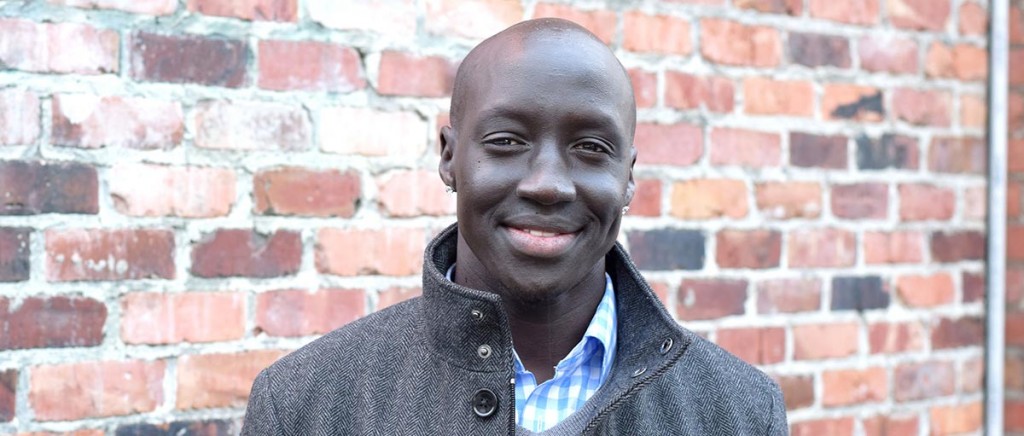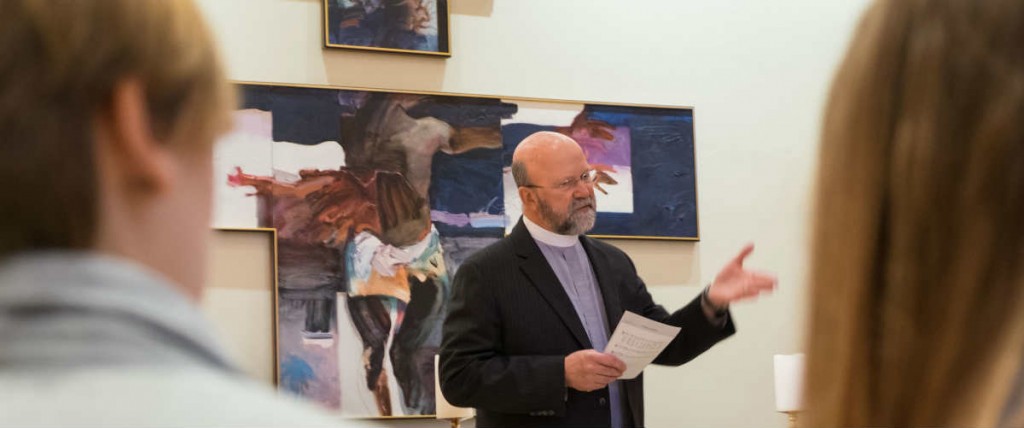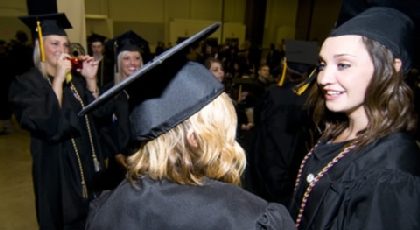Page 132 • (1,318 results in 0.08 seconds)
-

Latino Studies Lecture April 6 | 6:30 p.m. | Xavier 201 Dr. María Chávez, PLU Associate Professor of Politics and Government, will give a lecture titled “The Pioneers: The Role of Public Policies and Mentors for First Generation Latino Professionals.” Inaugural PLU Undergraduate Research Symposium April 8 | 9 a.m.-5 p.m. | Anderson University Center MORE INFORMATION Hitler’s Pink Victims: Robert Oelbermann and the Persecution of Homosexuals in Nazi Germany April 19 | 7:30 p.m. | Anderson University
-

, Microsoft Teams, and other tech—few had used it for everyday instruction. Virtual singing classes were soon on Brizuela’s schedule. “We were able to explore the music a little bit differently,” Brizuela says. “Last spring was definitely, ‘Let’s figure out how to make the students successful with the limited time and materials that we have.'” Students could practice research skills and sight-singing and record themselves. Essentially, activities often shunted aside when focused on concert deadlines
-

resembles the child his relatives once knew. Above all, David looks forward to seeing, holding and being with his mother. The two have communicated for the past 11 years, since his first year at PLU. He tracked her down through tireless research during his teen years in a Tacoma foster home. “As soon as I could I sent money to my mother so she could buy a phone,” he remembers. “That was the start of a fruitful relationship with her.” David talks to his mother two or three times per month. It’s not
-

the liberal arts—A basic understanding of history, language, art, religion, culture, ethics, philosophy and science is a foundation for all more specialized knowledge, c.f., PLU’s ROTC program. Learning and research within community—Nobody pursues an education alone. We were meant to collaborate with each other. It’s built into our DNA. Even an online course assumes there’s someone on the other end helping to lead and guide us while we study in front of our laptop. The intrinsic value of the whole
-
, the hopes and struggles of the globe enter the classroom and the hallway. We are, indeed, fortunate to have a faculty who offer their scholarly expertise to each other and to students who search for meaning in a world marked by suffering and hope. Such global awareness and commitment shapes Religion professor Samuel Torvend’s current research into how Benedictine practices with roots in the 6th century can inform contemporary efforts at sustainable living. A student author captures Dr. Torvend’s
-

experienced as a legislative intern in spring 2011. I also plan on taking classes in criminal justice at the University of Washington Tacoma. I’m fairly certain law school is in my future, but in the immediate future I will be working to gain more practical experience in the legal field before committing myself fully to that path. If I find that a career in law is not for me, I know some graduate work is: I would hope to continue my Classics capstone research in grad school, studying the interaction of
-
preparation for a career . . . People who have never learned to use reason and imagination to enter a broader world of cultures, groups, and ideas are impoverished personally and politically, however successful their vocational preparation” (294, 297). Through detailed descriptions of her research on undergraduate programs, Nussbaum demonstrates that this imagination—not unlike the compassion and love of neighbor that accompanies the I—cannot be developed through an unstructured, distributive core with a
-
faith as involving MacIntyre’s “fundamental conviction,” without —by equivocating on “fundamental”— leaving that faith unsupportable by evidence. One might plausibly hold that belief in God should be basic or fundamental; but in what way? Some seem to think that this means something like “foundational,” without support from other beliefs one holds. But others suggest that it means something more like “central” —perhaps along the lines of a well-entrenched belief in a scientific research programme’s
Do you have any feedback for us? If so, feel free to use our Feedback Form.


